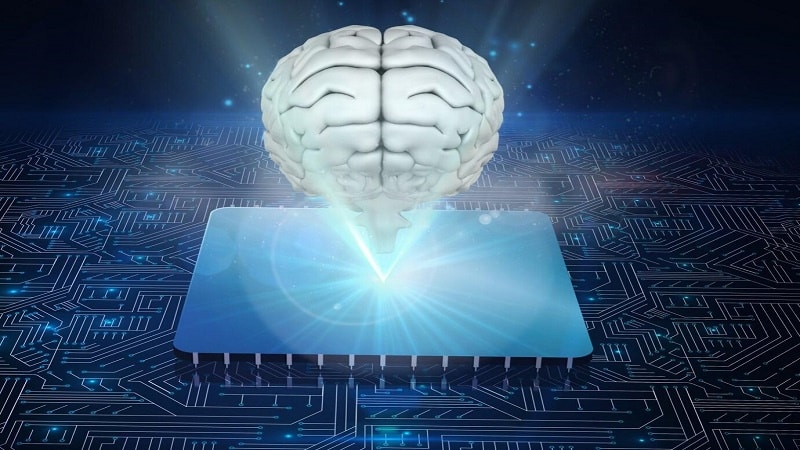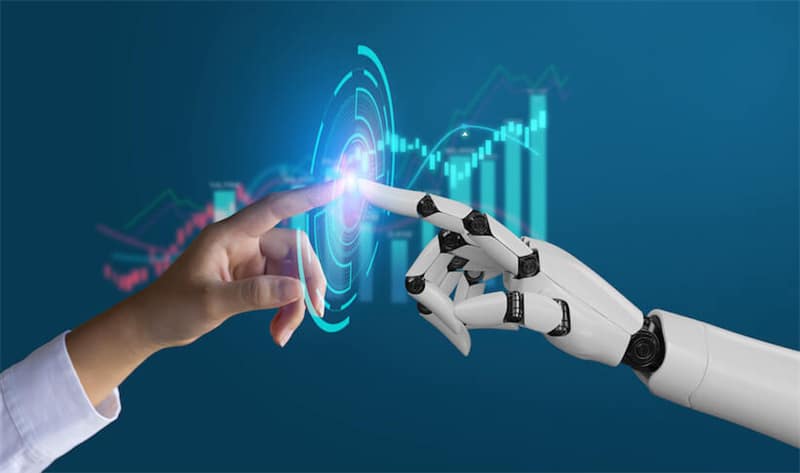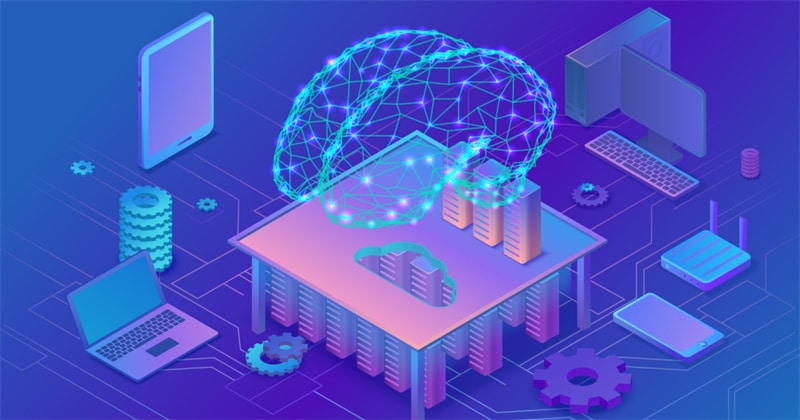
Artificial Intelligence (AI) is increasingly becoming a transformative force across various sectors, and education is no exception.
This powerful technology is progressively reshaping traditional teaching and learning methods, bringing forth innovative solutions that facilitate personalized, interactive, and efficient environments. While the integration of AI in education is still in its nascent stages, its potential benefits and transformative capabilities are already evident.
This article aims to delve deeper into the impact of AI on modern education and explore its promise for the future of learning.
Introduction to AI

Artificial intelligence, abbreviated as AI, is a branch of computer science that tries to construct machines that can mimic human intelligence. This includes tasks that require learning, reasoning, problem-solving, perception, and language understanding. In essence, AI is not just about automating repetitive tasks; it's about enhancing human capabilities and extending what we can achieve.
Over the years, AI has made remarkable advancements and has been adopted across various sectors, demonstrating transformative potential. In education, AI is paving the way for new methods of teaching and learning, making education more interactive, personalized, and effective. It holds the promise to revolutionize the field of education, opening new possibilities for both teachers and learners.
The Current State of AI in Education
As it stands, AI is already making substantial inroads into the realm of education. Personalized learning is one of the most prominent areas where AI is currently used. AI-powered systems can analyze a student's learning style, pace, and proficiency to tailor educational content to their unique needs. Adaptive learning platforms, like DreamBox and Knewton, use AI to customize lessons and provide real-time feedback, enhancing the learning experience.
Another significant application of AI is in the form of smart tutoring systems. These AI-driven tutors can provide individualized instruction and support to students, making it possible to access personalized tutoring outside of traditional classroom hours. Carnegie Learning's MATHia platform, for example, serves as a personal math coach, offering students step-by-step guidance and instant feedback.
AI is also improving administrative tasks in education. AI-powered chatbots, such as AdmitHub and Ivy.ai, are helping educational institutions streamline their administrative processes by providing instant responses to student's queries, application processing, and scheduling, freeing up valuable time for the faculty.
Lastly, AI is supporting the development of assistive and augmentative technology. Tools like Microsoft's Immersive Reader utilize AI to improve accessibility for students with learning disabilities by providing features like text-to-speech, line focus, and picture dictionary.
While these applications represent the current state of AI in education, they are merely the tip of the iceberg. The potential for AI to revolutionize education is vast, and as the technology continues to evolve, so will its applications in the classroom.
Benefits of AI in Modern Education
AI offers an array of benefits that can greatly enhance learning experiences and educational outcomes. One of its primary advantages is personalization. AI can tailor educational content based on a learner’s unique needs, strengths, and weaknesses, allowing for a more individualized learning experience. This personalized approach not only enhances engagement but also improves the effectiveness of teaching methods.
Secondly, AI provides increased accessibility. AI-powered tools can convert text to speech, translate languages in real-time, and provide additional support for students with learning disabilities, making education more inclusive.
Thirdly, AI fosters efficient learning. Through adaptive learning platforms and smart tutoring systems, AI can help students learn at their own pace and provide instant feedback, making learning more efficient and productive.
AI also assists in automating administrative tasks, saving educators valuable time they can devote to teaching and mentoring students.
With these benefits, AI positively alters the educational landscape, making learning more personalized, accessible, efficient, and effective. The coming years will undoubtedly reveal even greater enhancements as AI continues to evolve and integrate into the educational sphere.
Challenges and Concerns
Despite its exciting potential, integrating AI into education is not without its concerns and challenges.
Data privacy and security are primary concerns. AI systems require vast amounts of data to function effectively. This raises concerns over how student data is collected, stored, and used. Ensuring the privacy and security of student information is paramount, as breaches can lead to significant consequences.
Another concern is the risk of exacerbating educational inequalities. AI-based education tools, although increasingly accessible, are still not available to all students, particularly those in under-resourced communities. Dependence on AI could thus widen the gap between students accessing these tools and those without.
Further, there are worries over the lack of human touch in AI-based instruction. While AI can simulate human tutoring to some extent, it may lack the empathetic understanding and emotional connection that a human teacher can provide.
Lastly, there's a concern regarding the reliability and bias of AI systems. These systems are only as good as the data they are trained on. If the data is biased, the AI systems could perpetuate those biases, leading to unfair educational outcomes.
Addressing these challenges requires thoughtful planning and robust policies. While the potential of AI in education is immense, it's crucial to proceed with caution, ensuring that its benefits are realized responsibly and equitably.
Case Studies of Successful AI Implementation in Education
While there are still challenges and concerns surrounding the integration of AI into education, many success stories demonstrate its potential to enhance learning experiences.
Case Study 1: Georgia State University (GSU) and Pounce Chatbot
At GSU, AI has been put to effective use through the Pounce chatbot, named after the university's mascot. Pounce, developed by AdmitHub, assists students in navigating the enrollment process, answers queries, sends reminders about upcoming deadlines, and provides general university information. The chatbot has dramatically improved GSU's enrollment process, reducing “summer melt” (students who accept an offer but don't enroll) by 22%. It's a clear success story of how AI can improve administrative efficiency and student engagement in higher education.
Case Study 2: The University of Michigan and ECoach
The University of Michigan implemented an AI-based platform called ECoach to provide students personalized advice and resources. The platform utilizes AI to tailor guidance based on individual student's progress, motivations, and concerns. It has proven effective in helping students navigate their courses and improving overall academic performance. The successful implementation of ECoach underscores the potential of AI in offering personalized and effective academic support.
Case Study 3: New Jersey Institute of Technology (NJIT) and ALEKS
NJIT used an AI-based learning system called ALEKS (Assessment and Learning in Knowledge Spaces) to enhance math instruction. ALEKS uses adaptive questioning to quickly and accurately identify a student's knowledge level and then provides instruction based on the student's unique needs. As a result, NJIT saw notable improvements in student learning outcomes and course pass rates, demonstrating the potential of AI in enhancing personalized learning experiences.
These case studies illustrate how, when thoughtfully implemented, AI can meaningfully enhance education. Whether it's through streamlining administrative tasks, offering personalized academic guidance, or adaptively instructing based on individual learning needs, AI has the potential to impact the future of education significantly.
Looking Ahead: The Future of AI in Education

As we gaze into the future of AI in education, we see a vista of opportunities. We envision a world where AI further personalizes and democratizes education, making high-quality learning accessible to all, irrespective of geographic location or economic status. The concept of intelligent tutoring systems may extend beyond academic support to include emotional and psychological guidance, handled with sensitivity and empathy.
Moreover, AI might bolster collaborative learning by connecting students worldwide, fostering cross-cultural understanding and global citizenship. The role of teachers will evolve, with AI handling administrative and routine instructional tasks, freeing teachers to play the roles of mentors, coaches, and facilitators.
In terms of research and development, we could see the emergence of AI technologies that capture and interpret non-verbal cues from students, providing deeper insights into their learning processes. This technology could analyze student's facial expressions or body language to understand their engagement level, emotional state, or confusion, facilitating more effective learning interventions.
However, realizing these possibilities requires addressing the challenges we currently face. Robust policies will be needed to ensure data privacy and security, and efforts will need to be made to reduce the digital divide and ensure equitable access to AI technologies. Furthermore, efforts will be needed to ensure diversity and inclusivity in AI development teams and in the data used to train AI systems to prevent AI biases.
Final Thoughts
AI is revolutionizing the education landscape, transforming traditional teaching methods and paving the way for a more personalized, accessible, efficient, and effective learning experience. But don't get this wrong: AI will not replace teachers. It will augment and support them in their crucial role as educators. Students can't cheat with AI; there are numerous AI content detection tools already available to detect AI-written content, so students must put in the effort to learn.
As AI continues to evolve, we must ensure its integration into education is responsible, equitable, and geared towards enhancing the overall learning experience. With proper planning and policies in place, AI has immense potential to shape a brighter future for education.










